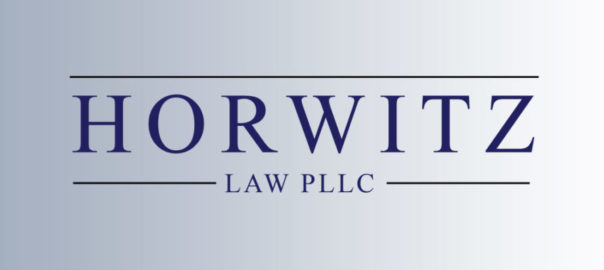By Daniel A. Horwitz:
On May 24, 2022, a gunman massacred 19 elementary school students and two teachers in Uvalde, Texas. 376 law enforcement officials who responded to the scene—who lied about at least a dozen critical facts of the shooting afterward—stood idly by while the gunman’s hour-long execution of young children and their teachers unfolded before them. “Law enforcement responders failed to adhere to their active shooter training, and they failed to prioritize saving the lives of innocent victims over their own safety,” an Interim Report by the Texas Legislature’s Investigative Committee concluded. The same committee also determined that law enforcement’s fatal failures were not attributable to “malice or ill motives”; instead, “systematic failures and egregious poor decision making” were the culprits.
In a unanimously wrong decision issued by the Tennessee Supreme Court on February 16, 2023, Tennessee’s high court has ruled that if this exact scenario unfolds in Tennessee tomorrow, then the government need not pay for any of the harm caused. Only a concurring opinion by Justice Kirby—which expressly (and blessedly) calls for review of Tennessee’s outmoded, extra-statutory, judge-invented “public duty doctrine”—explains why. The practical effect of the Court’s opinion, though, is clear: If heads, then the government wins. If tails, then the plaintiff suing the government loses. In virtually all instances, however, the government will not have to pay.
To understand how Tennessee law arrived at this disturbing point, some background is useful. At common law, governments were generally immune from any lawsuit based on the doctrine of “sovereign immunity.” The origins of that despotic doctrine are unapologetically monarchical. “‘[D]eeply rooted in feudal notions of the divine right of kings,’ sovereign immunity, which protects the state and its political subdivisions from tort liability, is based upon the premise that ‘the King can do no wrong.’”[1]
In 1975, a closely divided Tennessee Supreme Court disagreed about whether sovereign immunity was part of Tennessee’s common law. Disputing that it was, two dissenting Justices complained that interpreting Tennessee’s straightforward law on the matter “does not require brilliance—just intellectual honesty”; that application of sovereign immunity had “produced ludicrous results”; that the Tennessee Supreme Court had woven “a tangled web . . . to protect and promote an unjust rule of law”; and that they would “condemn this legal monstrosity to the oblivion which it so richly deserves.”[2] The dissenting Justices’ views did not carry the day.
Sovereign immunity’s questionable origins aside, all agree that Tennessee’s General Assembly has authority to enact legislation allowing the government to be sued for tortious misconduct. In the 1970s, a slightly more evolved Tennessee General Assembly also did just that. In particular, “[i]n 1973, following the lead of other states that had abolished or limited sovereign immunity by statute or judicial decision, our General Assembly passed the Tennessee Governmental Tort Liability Act[.]”[3]
The GTLA’s most important provision—Tenn. Code Ann. § 29-20-205—states that: “[i]mmunity from suit of all governmental entities is removed for injury proximately caused by a negligent act or omission of any employee within the scope of his employment” except for specified exceptions (such as intentional misconduct) that are listed in the statute. Based on this provision and the sole purpose underlying it (to allow tort victims of government negligence to recover), one might reasonably expect that the government could be sued successfully when its negligence causes harm. Given another judicially manufactured common law doctrine—the “public duty doctrine”—that appears nowhere in the GTLA, though, the practical reality is quite different.
“The public duty doctrine originated at common-law and shields a public employee from suits for injuries that are caused by the public employee’s breach of a duty owed to the public at large.”[4] This is a complex way of saying that if a public employee owes a duty to every member of the public, then the government is immune from suit if that duty is violated as to any specific person. Thus, based on this doctrine, the Tennessee Supreme Court explained in 1975 that “[i]t is the settled law in this state that private citizens, as such, cannot maintain an action complaining of the wrongful acts of public officials unless such private citizens aver special interest or a special injury not common to the public generally.”[5]
To be sure, the Tennessee Supreme Court is aware that “[t]he public duty doctrine is not expressly listed as an exception to the waiver of immunity for injuries resulting from negligent acts or omissions of governmental employees” set forth in Tenn. Code Ann. § 29-20-205,[6] which instead delineates ten exceptions that are not the public duty doctrine. Given that, how can it be that the public duty doctrine is still applied as an exception to liability in negligence cases arising under the GTLA? The answer is straightforward and unsettling: Because regardless of the statute that the Tennessee General Assembly enacted, the Tennessee Supreme Court preferred a policy that prevented the government from being sued instead. “We think that on balance, the State is better served by a policy that both protects the exercise of law enforcement discretion and provides accountability for failure to perform a duty,” the Tennessee Supreme Court explained in 1995.[7] Given the Tennessee Supreme Court’s traditional fondness of proclaiming that “[i]t is not the role of this Court to substitute its own policy judgments for those of the legislature[,]”[8] the Court’s explicit embrace of such judicial policymaking is curious.
In any case, since 1995, the Tennessee Supreme Court has held that “the public duty doctrine was not abolished by the Governmental Tort Liability Act and that sound policy reasons support its continuance[.]”[9] As a result, in order to sue the government for negligence caused by an employee, a plaintiff must generally raise a negligence claim under the GTLA and then overcome the separate immunity conferred by the public duty doctrine as well.
Until yesterday, doing so was difficult but not impossible. In particular, based on the same 1995 decision discussed above, the Tennessee Supreme Court held that plaintiffs could overcome the public duty doctrine’s additional layer of immunity when one of the following three circumstances applied to establish a “special duty”:
1) officials, by their actions, affirmatively undertake to protect the plaintiff, and the plaintiff relies upon the undertaking; 2) a statute specifically provides for a cause of action against an official or municipality for injuries resulting to a particular class of individuals, of which the plaintiff is a member, from failure to enforce certain laws; or 3) the plaintiff alleges a cause of action involving intent, malice, or reckless misconduct.[10]
The first two exceptions are sufficiently rare that few plaintiffs can rely on them. Thus, in virtually all cases in which the public duty doctrine applies, plaintiffs need to plead a negligence claim under the GTLA and also allege “reckless misconduct” to overcome the public duty doctrine. The reason why was simple: The GTLA itself provides that intentional and malicious conduct remain subject to immunity.[11] Thus, in most cases, the only non-exempt theory of relief that permitted a plaintiff to navigate both the GTLA’s and the public duty doctrine’s overlapping layers of immunity were negligence claims that involved reckless misconduct.
Based on this difficult-but-not-impossible state of affairs, at least some plaintiffs who found themselves the victims of government negligence could and did recover for their injuries. For instance, in April 2022, the Court of Appeals reinstated a negligence claim filed by a gunshot victim who alleged negligence on the part of a sheriff’s deputy, unanimously explaining that “[t]he complaint also contains sufficient factual allegations of reckless misconduct such that the special duty exception to the public duty doctrine could apply.”[12] Thus, the Plaintiff’s negligence-combined-with-recklessness claim went forward. Other victims of governmental negligence that involved recklessness were able to survive early dispositive motions and then recover, too.
No longer. Courtesy of the Tennessee Supreme Court’s decision in Lawson v. Hawkins Cnty., 2023 WL 2033336, at *6 (Tenn. Feb. 16, 2023), the Tennessee Supreme Court has now determined that:
The [GTLA] removes immunity only for “negligent” employee acts. Common-law precedent and statutory context make clear that the term “negligent” in section -205 means ordinary negligence, not gross negligence or recklessness. The Court of Appeals erred by holding otherwise.
The reasoning underlying the opinion is exceedingly poor. For instance, the opinion relies heavily on Tennessee’s COVID liability statute—which was enacted in 2020, and which also had little bearing upon and did not purport to address the question presented—to determine the meaning of a statute enacted almost fifty years earlier. That is an unusual departure from traditional interpretive methods, particularly given that the opinion was authored by the same Justice who—only six months ago, and in another government-favoring opinion that similarly raised eyebrows—took pains to emphasize the importance of examining “[o]riginal public meaning” and “authoritative dictionaries published around the time of a statute’s enactment[,]”[13] none of which appears to have been consulted. Also ignored was directly relevant Tennessee statutory law, which has long recognized that simple negligence claims may include recklessness. See, e.g., Tenn. Code Ann. § 29-39-104(a)(1) (providing that recklessness may support an award of punitive damages in negligence cases); Wilson v. Americare Sys., Inc., 397 S.W.3d 552, 553 (Tenn. 2013) (remanding for consideration of punitive damages award in suit arising from, among other things, reckless misconduct in case where “the negligence of the staff, the owner, and its management company caused Ms. Farrar’s death.”). The decision conflicts with recent authority from other jurisdictions that bears directly on the point, too. See, e.g., Weis v. Baumann, No. DBDCV216038973S, 2021 WL 4895122, at *3 (Conn. Super. Ct. Sept. 22, 2021) (“While not all negligent acts are reckless, reckless conduct will almost certainly always also be negligent.”).
Given the continued application of the public duty doctrine, the practical effect of the Lawson Court’s ruling is certain: Virtually no plaintiff will be able to recover against the government in a negligence case. In particular, to be able to sue under the GTLA, a plaintiff is now required to assert a simple negligence claim alone, because claims of recklessness are not subject to liability. After asserting such a simple negligence claim, though, the plaintiff’s claim will be dismissed for failure to assert recklessness based on the public duty doctrine’s overlapping layer of immunity forbidding simple negligence claims. So heads, the government wins, and tails, the plaintiff suing the government loses.
One Justice, at least, has recognized the “Catch-22 for plaintiffs” that the Tennessee Supreme Court has now assured. Specifically, in a concurring opinion, Justice Kirby noted that:
If the plaintiff’s complaint alleges that the governmental entity’s employee was reckless in order to qualify for the “reckless misconduct” special duty exception to the public duty doctrine, then dismissal under the GTLA is likely because immunity is not removed for reckless conduct. Conversely, if the complaint alleges that the governmental employee was negligent in order to avoid dismissal under the GTLA, the plaintiff risks dismissal under the public duty doctrine by making his claim ineligible for the special duty exception for reckless misconduct.[14]
Justice Kirby’s concurrence also calls upon the Tennessee Supreme Court to consider whether it should “discontinue application” of the outmoded public duty doctrine “in deference to the statutes governing immunity” that do not embrace it.[15]
Assuming that at least one other Justice agrees that the Court should reconsider the continued viability of the public duty doctrine, that opportunity will come soon. There are currently two cases pending in lower courts—one involving a woman’s preventable murder arising from Metro Nashville’s failure to enforce an order of protection, and another involving the preventable death of a pregnant woman who experienced a mental health event during a Metro police response—in which the claim that the public duty doctrine should be overruled has been expressly raised and preserved.
Regrettably, the Tennessee Supreme Court’s decision in Lawson is yet another example of courts undermining citizens’ ability to sue the government in the face of statutes that expressly provide they can. Courts’ extra-statutory eagerness to gut the remedies afforded by 42 U.S.C. § 1983—the most important civil rights statute ever enacted—through the judge-made doctrine of qualified immunity is perhaps the best known example. Less well known is the fact that courts have gutted, for instance, the remedies afforded by statutes like the law enforcement proviso of the Federal Tort Claims Act following a successful reform effort that was designed to ensure that federal law enforcement officials could be sued for intentional torts. In every such case, though, courts’ response to legislative efforts to afford citizens a remedy has been to ensure that that remedy is as useless as possible and to leave tort victims like Mrs. Lawson without a remedy.
On a broader level, this reliable pattern is corrosive to democracy. Unlike tacitly intimidating judges by visiting their homes, the right way to advocate for policy change is democratically—by petitioning legislators to change the law by adopting needed reforms, and by voting them out of office when they refuse. When courts disrespect the results of the democratic process after citizens have advocated for reform successfully, though—for instance, when they rule that “on balance, the State is better served by a policy” that protects the government from being sued regardless of the legislation that the democratic process produced—the resulting message that judges (most of whom are former government lawyers) do not actually respect the democratic process is clear. Unless and until the judiciary as a whole sheds its heavy preference for government-friendly outcomes, though, it seems unlikely that confidence in the American judiciary—currently at a historic low—is at risk of improving anytime soon.
Like ScotBlog? Join our email list or contact us here, or follow along on facebook at https://www.facebook.com/scotblog.org.
[1] Hughes v. Metro. Gov’t of Nashville & Davidson Cnty., 340 S.W.3d 352, 360 (Tenn. 2011) (quoting Cooper v. Rutherford Cnty., 531 S.W.2d 783, 786 (Tenn.1975) (Henry, J., dissenting)).
[2] Cooper., 531 S.W.2d at 788–92 (Henry, J. dissenting).
[3] Hughes, 340 S.W.3d at 360.
[4] Ezell v. Cockrell, 902 S.W.2d 394, 397 (Tenn. 1995).
[5] Bennett v. Stutts, 521 S.W.2d 575, 576 (Tenn. 1975).
[6] Ezell, 902 S.W.2d at 400.
[7] Ezell, 902 S.W.2d at 401.
[8] State v. Gentry, 538 S.W.3d 413, 420 (Tenn. 2017) (citing Frazier v. State, 495 S.W.3d 246, 249 (Tenn. 2016))
[9] Ezell, 902 S.W.2d at 401.
[10] Ezell, 902 S.W.2d at 402.
[11] See Tenn. Code Ann. § 29-20-205(2), 29-20-205(4), 29-20-205(6).
[12] Haynes v. Perry Cnty., No. M2020-01448-COA-R3-CV, 2022 WL 1210462, at *1 (Tenn. Ct. App. Apr. 25, 2022).
[13] State v. Deberry, 651 S.W.3d 918, 924 (Tenn. 2022) (emphasis added).
[14] Lawson, 2023 WL 2033336, at *12 (Kirby, J. concurring).
[15] Id.





